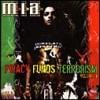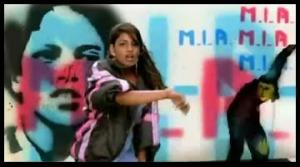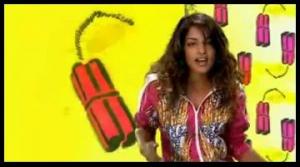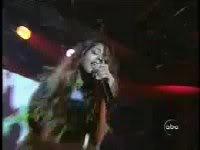-
Posts
227 -
Joined
-
Last visited
-
i've been looking for something like that, not as many hours though. how'd you find out about that? it's got to be cool working at home doing that, you set your own hours?
-
i think it was a mixture of all the sports, but i think hockey probably did the most damage. of course, soccer, running, gymnastics, etc probably didn't help any, but 'falling' on your knees with no knee-pads or anything all the time isn't too good either i haven't played in a long time my knee is getting better, there's still work that has to be done though.
-
thanks maddog i'm not 100% sure of what exactly hurt my knee, it could've been the sports i played in school though. being a butterfly-goalie without knee-pads is not so good for your knees apparently but i do know that the cartilage underneath my knee-cap was tearing away.
-
good to hear you're doing well maddog, i've been doing ok. i just finished up 3 1/2 months of physical therapy about a week and a half ago. and two weeks ago this monday Oti passed on it's tought but i'm doing ok.
-
svelte started following Now Playing
-
M.I.A.'s been on the move. The sounds she's encountered have become her own. It's hard to say which is more interesting: M.I.A.'s background or her music. Beginning as a youth on the run from authorities, continuing as a teen refugee in London and now as an artist with what is likely to be one of the most written-about albums of 2005, the 27-year-old daughter of a Sri Lankan rebel has lived a tragic yet extraordinary life. Already, M.I.A.'s electro-Bollywood-hip-hop has generated gargantuan interest among pop tastemakers, all of it based on a single song. "Galang," named one of last year's 10 best singles in Rolling Stone's critics' poll, is an intensely rhythmic culture clash that draws heavily on American gangsta rap and Hindi film, Jamaican dancehall, Europop and multiculti gibberish. The song exploded in the U.K. a little more than a year ago. It began washing up on American dance floors last summer and is now bubbling up to radio. M.I.A.'s debut album, "Arular," out next month on XL Recordings, is a more in-depth exploration of the singer's refugee eclecticism. From start to finish, it is an unstoppable riot of sound, weaving London street slang with Sri Lankan nursery rhymes, world politics and personal experience. Vacillating between attitude and innocence, her songs are tough- talking raps, but they're softened by a Hindi vocal style that ends lines of lyrics with curlicue upswings. M.I.A.'s recent sold-out performance at the Knitting Factory Hollywood was equally iconoclastic. Waving her hands in the air and self-consciously pacing the stage before a DJ, swirling lights and background videos, she was half hip-hop bravado and half "how did I get here?" "It kind of shocked me that there were so many people that knew the songs," M.I.A. says the next day. "My album's not out." Singing along is no easy feat, laden as the songs are with Cockney slang. Perhaps some in the audience were working off the lyric sheet one enterprising fan was selling at the club. Seeking out a sliver of sunlight in the dark Hollywood Roosevelt Hotel dining room, M.I.A. seems oblivious to the buzz surrounding her and her music. Feminine and model beautiful but entirely down to earth, it's clear she hasn't bought into her impending fame and is taking it all in stride. Stardom, after all, is just the next stop in a life that has, quite literally, been all over the map. Few Western pop singers have lived as chaotically as M.I.A. and who would have wanted to? Her formative years were a steady progression from bad to worse, going from poverty to persecution to war and alienation before she was able to turn it around. A father's influence Born in London, Maya Arulpragasam, as she was then known, moved to Sri Lanka with her family when she was 6 months old. It was 1978, and tensions between the country's two ethnic groups were growing. M.I.A. and her family were among the minority Tamil population in a country dominated by Sinhalese; her father was part of a militant group seeking independence. Rebel activities kept her father separated from the family and her family on the run for the next decade. When civil war broke out, they relocated to India, living for a year and a half "in a room surrounded by five miles of empty land," she says. "When it rained, it flooded. You'd have to basically swim through with snakes going past. My father's idea of safety was sticking us in the middle of nowhere where the army couldn't get us but without water, food, medication and money." With her family close to starvation and her sister sick from typhoid, an uncle helped move M.I.A.'s family back to Sri Lanka. In their native country, they at least had a support system, even if the war was in full swing. The area where they lived was regularly bombed, including the convent where M.I.A. went to school. Several failed attempts to flee the country ended with M.I.A. and her family moving to India, then London. Her father stayed behind. It's this core experience that drives much of the lyrical content in "Arular," which is her father's name. "For years when I moved to England, I was so embarrassed about being Sri Lankan and never talked about it," says M.I.A., an acronym for "missing in action." "The reason I started talking about my life is because I'd gone out thinking I was British for so long, I felt I owed it to inform myself on what was happening to the people I left behind. On a personal level, I feel guilty that I got away and so many kids didn't." M.I.A. returned to Sri Lanka in 2001. She was hoping to make "a random film about Tamil youth" and, in the process, sort out her feelings over the ongoing conflict in her parents' country. She returned to London more confused than ever. Much of the Tamil population today is starving and restricted to refugee camps, she says. The rebel group her father helped form is now considered a terrorist organization. "In the '70s, these people set out with ideas to be revolutionaries and fight for independence and struggle for freedom. All these real romantic notions," she explains. "Those terms don't exist anymore. Who would you call a terrorist? Who would you call a revolutionary today? I don't know." It's a timely question, and you can hear her trying to sort out the answer throughout the record in songs exploding with bombs, where glitchy electronics mimic machine-gun fire. By the end of the album, she turns the question to listeners: "You can be a follower, but who's your leader?" It's clear she's uncomfortable with those who blindly follow. Her entire life has been a struggle against the prevailing culture, and her personality and musical taste have formed accordingly. M.I.A. was 10 when her family settled in a housing project in London. Until then, her only contact with music was Bollywood films, television theme songs and bootleg tapes of Michael Jackson and Boney M. In England, she had a radio and a lot of cultural catching up to do. Madonna and Bananarama were her guides. Then her radio was stolen. Her ear turned to the hip-hop booming next door. "I looked through the window, and it was a 19-year-old kid and his mates would roll up in a car. It just seemed so cool, like a secret club," she says. In 1988, rap still held a sort of outsider appeal that immediately connected with the young South Asian transplant. M.I.A. didn't understand English, but she connected with the rhythm and look of Public Enemy, N.W.A and other artists she would later appreciate for their politics. M.I.A. never intended to be a rapper, or even a musician. She wanted to be an artist. As a student at St. Martin's Art School in London, she began exploring film. But when an art gallery asked her to contribute work to a show, she branched out to painting, channeling her Sri Lankan experience into candy-colored stencils of tigers, palm trees, hand grenades and warplanes. "I always grew up on the border of everything and not quite being let in," she says. "I was concerned about what I wanted to say but didn't really care how it came out." It was her paintings that brought M.I.A. into contact with Justine Frischmann, former leader of the rock band Elastica, who commissioned her to create the cover art for its 2000 album, "Menace," and a video for the single "Mad Dog God Dam." Frischmann also asked M.I.A. to accompany the group on its U.S. tour, videotaping their shows. Electro pioneer Peaches was touring with the band and encouraged M.I.A. to begin experimenting with the primitive sequencing machine that had become her stock in trade
-
'Are you lesbian?' 'No, I'm making music.' Here's a little tip for the kids. If you're going to be interviewing Miss M.I.A., be sure to tell your editor you're going to need at least a half dozen pages to squeeze in all the good stuff. If your editor finds this unreasonable, get a blog and just reprint everything there. That way, everybody wins. So. Today we talked to the delightful Maya Arulpragasam. The 800 word version of our encounter appears in tomorrow's National Post. If you'd rather just read a couple thousand of her words without ours getting in the way, this post is for you. Laughs have been edited out. But they were frequent. And wonderful. This will be far too long. And, for the uninterested, boring. Apologies. On handling the hype: Hopefully, you know, it's not going to last forever. I must be the only person who's like, thank god this is going to end soon... When I went to Germany I felt that. I went to Puerto Rico to do a show and then I went to Philly and then New York. And I did that in about two days. And then I had to fly to Hamburg and then Berlin. And it all happened in about five days. Then I was like, `I physically can't handle it.' I thought, I'm just going to disintegrate. On the audience in Germany: It's not even like English. [but] Germans get it. And they're really into it and stuff. I was thinking, `Do they even know what my lyrics are?' But they kinda do. They just feel like it doesn't even matter. I get that impression from them. As long as it's real. When I do music I want to make sure that there's [something] there for anyone and everyone. So that's fine that they only pick up on that. The journalists pick up on the lyrics and stuff, but my cousins in Germany call me up and they go, `You video's on in Burger King.' And I know that whoever's playing it is not really into the lyrics. On the controversy with MTV: I'm thinking still. I have to do it by today or tomorrow. It's just, I don't know, I'm going to wait until they get bored of asking me. Then I'll tell them something. They're going to play the video. And they said that they'll let everything slide as long as they have a statement. Otherwise, they'll have to cut sentences out of the song. But I feel like I shouldn't have to compromise at all. And they should know that. On her shoutout to the PLO: I was thinking, the Wu-Tang Clan said it all the time
-
Reggae Riddims and the Sound of London Grit (What Music Do I Listen To?) By M.I.A. IN 1986, 10-year-old Maya Arulpragasam and her family fled the civil war in Sri Lanka and settled in England. She learned English about the time she discovered another language: hip-hop, the perfect vernacular for describing life as a refugee in a squalid housing estate in South London. Now 28, she performs as M.I.A., for "Missing in Acton," a nod both to her London borough, Acton, and to the guerrilla spirit of her lyrics. After releasing two singles, the dancehall-inflected "Galang" and "Sunshowers," last year, XL Records will release M.I.A.'s much-anticipated first album, "Arular," in February. This week, she will play benefit shows at the Knitting Factory's Los Angeles (Feb. 3) and New York (Feb. 5) locations to raise money for tsunami relief in Sri Lanka. Joel Topcik recently spoke to Ms. Arulpragasam about what she's listening to right now and why. 'Bad Gal Riddim' "Dancehall producers come up with a new 'riddim,' or beat track, every week or so, and send it to different artists. Everybody does their own version of the new beat, and it becomes a compilation. 'Bad Gal Riddim' (Madhouse Records) is the newest to come out. It has a little bounce to it. 'Right There,' by Spice and Toi, is the most fun song I've heard all week. When dancehall got big a couple years back, a lot of girls got pushed out. Now they're getting back into it. I'm not even sure it's out yet - I heard it on pirate radio, which is where I get most of my music. The pirate D.J.'s are always six months ahead of everyone else." Ivy Queen "I'm a big fan of Ivy Queen. She's probably the biggest reggaeton star. Reggaeton is the sound coming out of Puerto Rico that's really huge in America now. Dancehall is much more stripped down, but reggaeton has a Caribbean sound - steel drums and different tempos. Ivy Queen and the dancehall rapper Sasha did a Spanish reggaeton remix of 'Dat Sexy Body' (VP Records) that represents a kind of unity between dancehall and reggaeton." Baile Funk "This is where my mind has been recently. 'Baile funk' ('funk ball') is basically Brazilian kids in the favelas (ghettos) going crazy, screaming the dirtiest lyrics over Clash songs and electronic music that sounds like Kraftwerk. They take Miami bass beats, really basic drum loops, heavy bass - I can only describe it as 'booty music' - and produce something so fierce and angry that reflects the absolute chaos around them. Diplo (half of the Philadelphia D.J.-duo Hollertronix) put out 'Favela on Blast: Rio Baile Funk '04' (available at www.hollertronix.com), a compilation of the best ones he found when he went to Brazil." Jim Jones, the Diplomats "Jim Jones has so much charisma and more attitude than most rappers put together. 'Crunk Muzik' (from 'Diplomatic Immunity 2' on Koch Records), with Cam'ron and Juelz Santana, is the best song to come out of the Diplomats crew. Such a powerful beat - and you can't tell what the chorus is, it's like 32 bars long. Rappers are like Rod Stewart now; they're like a bunch of Liberaces with their gold rims. The Diplomats are just a little bit off key from what others are doing. They seem to be experimenting the most, and they have a real fight mentality. It's the guerilla side of hip-hop." Lethal Bizzle "I love Lethal Bizzle's 'Forward Riddim Remix' of 'Pow!' (Relentless). It's a grime record that reflects the London streets in the most aggressive way possible. People call grime the new punk - electronic, minimal beats and mad bass lines. The remix makes the 'pow!' lyric from the original into the hook of the song, and it has so much energy. There are like 20 M.C.'s from around London on this track. It's just wicked. I live in a place with Somali refugees, Polish people, a lot of Arabic people, and this song is blaring out of every single car. It's what's empowering them now. It's like when you first hear Public Enemy's 'Fight the Power.' It makes you feel so good when you walk down the street listening to it." Ce'Cile "Ce'Cile hasn't had a really big hit yet. But she's strong and consistent, and she's not afraid to experiment. I thought it was brave for her to work with the producer Jacques Lu Cont on 'Na Na Na Na,' from the 'Two Culture Clash' CD (Wall of Sound). It most reflects what I like in a sound. It's minimal - just vocal and beat - with a synth-y drum loop. There are almost no changes at all - when the chorus comes in, Lu Cont just brings in an extra snare and pitches it up and then back down again. It's brilliant. It came out after my first single, 'Galang,' and it was good to know there was something else out there for the kind of music I want to do. If something like this could get on mainstream radio, it would be so great."
-
In a class of her own The freshest voice to hit underground music belongs to a woman who spent her childhood in Sri Lanka and teen years in London, and has experienced war, poverty and racism After weeks of waiting, and five straight days of phone calls, much back and forth, "just checking in" (me), and "things are really tight" (them), I finally get M.I.A. on the phone. Who? You won't be asking that question for long. Not if there is any justice. Not if there is an ounce of dignity in the music biz. Straight out of London, with her formative years spent in war-torn Sri Lanka, teen years as a refugee in London's public housing, and early 20s in art school, comes the freshest voice to hit underground dance music and, potentially, overground pop in recent memory. She might not be tearing up the sales charts yet (released in March, her debut album Arular, rose to No. 58 on HMV's top 75 this week), but M.I.A. - real name Maya Arulpragasam - has people in a tizzy. Garnering write-ups in pretty much every music (and many non-music) publication(s) out there - including Rolling Stone, Spin, Vibe, the New York Times, the New Yorker and the Village Voice - and with ear-to-the-ground music fans everywhere speaking her name in excited whispers, M.I.A. is on a roll. "Something's going on,"she muses, as she picks up the phone. "You got ahold of me, but there are still four people waiting - we've lost some along the way." She laughs. "Things are OK. So far so good." Did she see this coming? "No, never." She didn't see it coming when she was 6 months old and her family moved to Sri Lanka, where she, her mom and siblings lived in fear for their lives as her father fought as a member of guerrilla group the Tamil Tigers. She didn't see it back in England, amid poverty and racism in Mitcham, Surrey. She didn't see it when she put on her first art show at London's Central Saint Martins College of Art and Design. She didn't even see it when she had a real record label behind her (London's XL Recordings) and real producers in front of her, ready to work. "I always felt apologetic about making music," she explains. "When I went into the studio, my first words were always, 'Hi, I'm Maya. I'm really sorry.' And we'd work from there. "It's really strange. It just kind of happened." Her bashfulness is believable when she speaks of it, with unaffected candour and a chuckle. It's a stretch when hearing her spout sassy, schoolyard-style rhymes on record. Arular is catchy as heck. It's M.I.A.'s grand entrance as the most original, creative and charismatic vocal talent since Missy Elliott. Yet people don't know what to do with her. Her music is a video-game electro-clash of distorted dancehall and hip-hop rhythms, while her lyrics reference pop culture and revolution in the same breath. Hefty U.S. label Interscope (home to Eminem, Gwen Stefani, Black Eyed Peas), which has picked up Arular for distribution in the States, will have to figure out how to package such a huge, prickly talent for U.S. consumption. "I met Jimmy (Iovine, Interscope co-founder)," M.I.A. recounts. "I went to his house. They're curious - it's really cute - they're looking at me going, 'What are you?' I'm going, 'What are you going to do with me?' "They stare at me a lot. But they help me out. "They surprise me every time. ... They're giving me a lot of control. I just go, 'Uh, I'm Sri Lankan, I'm not a rapper, I'm not Gwen Stefani.' We'll see what happens." Elsewhere in the confusion department, MTV is reportedly holding back her Sunshowers video until she takes out the PLO reference ("You wanna go? / You wanna winna war? / Like PLO I don't surrendo") and until she explains what exactly it means to "salt and pepper my mango." "In Sri Lanka, Mexico and the Caribbean," she explains, "they put salt and pepper on green mangos. When it's warm, they put chili peppers and salt. It's amazing. I used to eat them on the way to school in Sri Lanka." Those looking for a sexual subtext won't find it. "The other meaning would be that I present an alternative to what already exists in your everyday stereotypical convention." As M.I.A. sings about power to the people - as she baits Bush and calls to youth to "break that cycle" of consumerism and status quo adherence - she emphasizes that her presence, her access to the platform, is itself the message. "The act of me making music now," she says, "and not doing it like other people, is more important for people to learn from than what I'm saying in my songs. "For every kid who died in Sri Lanka or the tsunami, how many of them, if they had access to a 505 (Roland drum machine), might have been amazing? We don't know. "You can grow up in a mud hut in Sri Lanka, be a refugee with no money living in (public housing), and get to a point where people listen to you. It's a big journey to make. And along the way, if I can say, 'Look, just stop bombing people; call it a day,' then, great." But let's get back to the music. Between her looks, her lyrical subject matter and her life story, M.I.A. sometimes gets short shrift when it comes to her abilities. Her vocal delivery is a wonder to hear. With mesmerizing fluidity, she evokes both coy girlishness and stoic defiance, not to mention superfly rhythmic timing and melodic instincts. She surprises at every turn with her word associations, positing herself as a righteous, tireless trickster. Set against stagger-shot rhythms and sonic collage backdrops, it is nothing short of heroic. M.I.A. manages to incorporate the disparate - at times diametrically opposed - facets of her life into a masterful work of populist pop art. She takes her absent father's life-and-death struggle and London club-culture cool and makes something personal, political and provocative. It all started - the music, that is - with Peaches. Touring as a videographer for British group Elastica, M.I.A. became fascinated by the brash, sex-talking, Toronto-bred electro star, who performed nightly in the opening slot. "I realized you can make a loud noise all by yourself," she says. Peaches taught her the ins and outs of her Roland MC-505 and M.I.A. was on her way. She started making music in her bedroom and, the story goes, got her break by walking into the office of neighbourhood label XL with the line, "I heard you've been looking for me." She hooked up with producers Steve Mackay (of Pulp) and Rob Orton, with whom she fine-tuned her introductory hits Galang and Sunshowers. Seeking further production help led her to Philadelphia DJ Diplo, in whom she found a kindred spirit. Diplo produced just one track on Arular - the Theme from Rocky-sampling Bucky Done Gun. More importantly, he produced the underground-rattling bootleg mix Piracy Funds Terrorism, on which M.I.A.'s vocals are laid over and among a globetrotting throwdown of southern crunk hip-hop, dancehall reggae, '80s pop and Brazilian baile funk. "We wanted to put together something that reflected the sounds I've come through, and that I listened to in the making of the album. And to show that I wasn't completely crazy, that my stuff was relatable to different styles." The two are now an item and Diplo is accompanying M.I.A. as her tour DJ. But she denies rumours that they are engaged. In terms of where she's at, and where to go from here, M.I.A. leaves things open. "(Arular) is a yardstick," she says. "You could have nothing, get a four-track recorder for 100 pounds, two tapes for 50P each and borrow a drum machine that costs 600 pounds, and see how far you can get with it. "In terms of the creative, there's so much more I need to explore. This first album is really about discovery, finding out about music, starting from scratch. Now I've got to a point where every other thing I'm going to do will count."
-
M.I.A. drops dance bomb Sri Lanka-born singer shakes things up M.I.A. is the Anglo-friendly pseudonym of Sri Lanka-born Londoner Maya Arulpragasam. Her music is a stunning mix of hip-hop, ragga, dance and electronica. The mix, with the young woman's unrelentingly political lyrics, bears more than a passing influence from no-wave bands like Gang of Four; the beats are erratic, spitting and shifting in ways that should keep potential dancers jumping, jerking and losing their balance. Lyrically, M.I.A. could be mistaken for a rabble-rouser, a potential threat to national security. While she chants such liberal mantra as "Pull up the people/Pull up the poor," almost every song includes references to shooting guns, setting off bombs, making things go pop, pop, boom. She sings, "I'm a fighter, nice nice fighter," but it isn't exactly obvious whose side she's "fighting" for. She suggests that "Every gun in battle is a son and daughter too," and there are several references to ways in which physical conflict is absurd, so we might assume that she is a soldier for peace
-
it's hard to get caps from her JKL performance because the video quality is not so good, but here's two

















